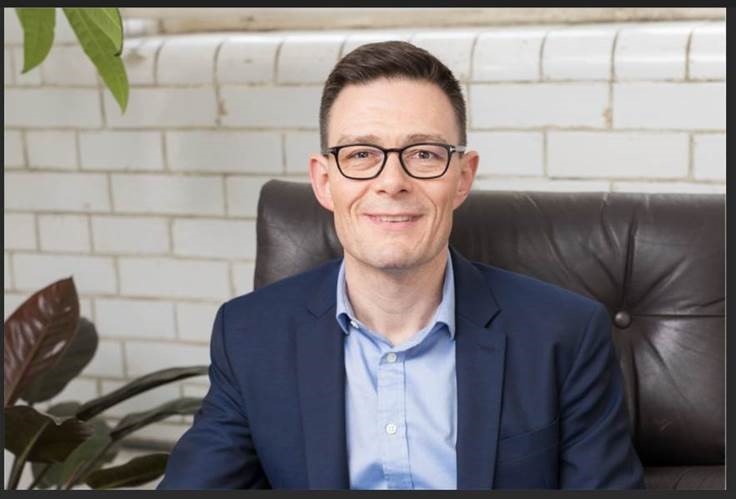
The relationship between consumers and business has fundamentally shifted – the rise of the belief-driven buyer is transforming consumer behaviour – belief-driven buyers are now age, gender and income agnostic.
Customers today think about far more than simply the price of the product or service you are providing, but also how you go about providing it and the impact that then has on the world around us all.
It is now expected of all organisations and most will work through ESG or CSR frameworks. However, it can be perceived as having little value creation in the harsh reality of the day to day running of a business and becomes a tick the box exercise.
Demonstrating how you perform against these frameworks is no longer a “nice-to-have” – there are now significant customer and investor risks without it – investors look at how businesses generate value across all stakeholders – employees, suppliers, customers and society at large.
In other words, ESG/CSR are more than just buzzwords – doing better and showing customers how you do that, how you impact environmental, social and governance factors will be fundamental for us all in the years ahead.
In recent months we have seen a host of mortgage lenders unveil green mortgages as well as rewarding borrowers with lower interest rates should their property meet certain energy efficiency standards. This has a positive knock-on effect in the buy-to-let market, where landlords will need to ensure their properties have at least an EPC rating of C for all new tenancies from 2025, and for existing tenancies from 2028.
I’m proud to say that ULS technology delivers well on this front. Our DigitalMove platform, which brings together all of the stakeholders in a transaction or remortgage, has not only improved the communication and speed of a deal, but it’s also made a real environmental difference too. Because the customer no longer fills out physical forms, huge amounts of paper are being saved – we’ve calculated that DigitalMove has saved as many as 20 million sheets of paper, or the best part of 200 trees. The fact that it has helped open up routes of communication that might previously have relied on face-to-face interactions is a further feather in its green cap.
It would be wrong to view being a good corporate citizen through the lens of just our environmental impact though. The focus on ethics, on working with businesses that operate in the right manner, stretches beyond simply those who are reducing their environmental footprint and encompasses the very DNA of a business and those who run it. Customers want to get a sense of who they are dealing with, and how they operate, what sort of impact – positive or otherwise – that firm is having on society as a whole.
One of the top issues consumers identify with while making a decision about engaging in the service of a business is how the company treats its own employees. Having a diverse range of voices across the business at all levels of the organisation helps here. By building a broad base of expertise, bringing together people from a variety of backgrounds, then you can ensure that decisions are made from a more informed and balanced position. If everyone in a senior position looks the same and has had largely the same life experiences and backgrounds, then inevitably that will influence the decision-making process and risk leaving us out of step with what our customers want. Employees are increasingly driven by seeing the impact of being part of something bigger, this needs to be driven from the top, and employees will in the long run take a greater pride in their work and in turn become authentic ambassadors.
Businesses have the people, power and privilege to make people’s lives better and those who do reap the rewards. With so much consumer choice those businesses that are clear on their societal impact are discovering new opportunities to deliver value to their customers and the communities in which they operate. By being authentic in how they articulate their impact and showing real examples of the benefit they bring many of these companies are outpacing their competitors.
It’s important to accept that nobody has all of the answers. The businesses that excel at this all do it differently – it may come from a passion point of a senior leader or for many new businesses it is their starting point and therefore runs through the heart of everything they do.
Finding better responsible ways to operate, both environmentally and ethically, is a continuous journey and while we have already made excellent initial strides, both as a business and as an industry, we remain some way behind the pace that is being set.
That’s why it’s so crucial as an industry to talk openly about this subject, to work together to identify ways that we can better understand and represent our customers so that we meet their expectations. This is, after all, an industry built on partnerships and how we behave will have a bearing on who we work with.
Take mortgage brokers for example. If they see growing numbers of clients who are keen from the outset to work with ethical, responsible firms then that will inevitably influence the lenders they recommend and the conveyancing firms they suggest.
Embracing societal issues isn’t just the right thing to do from an ethical standpoint, it’s also the correct approach from a business perspective. Don’t make it a tick box exercise – make it part of how you serve your customers, and how you operate your business and your shareholders will be well rewarded.
Jesper With-Fogstrup is chief executive of ULS technology



